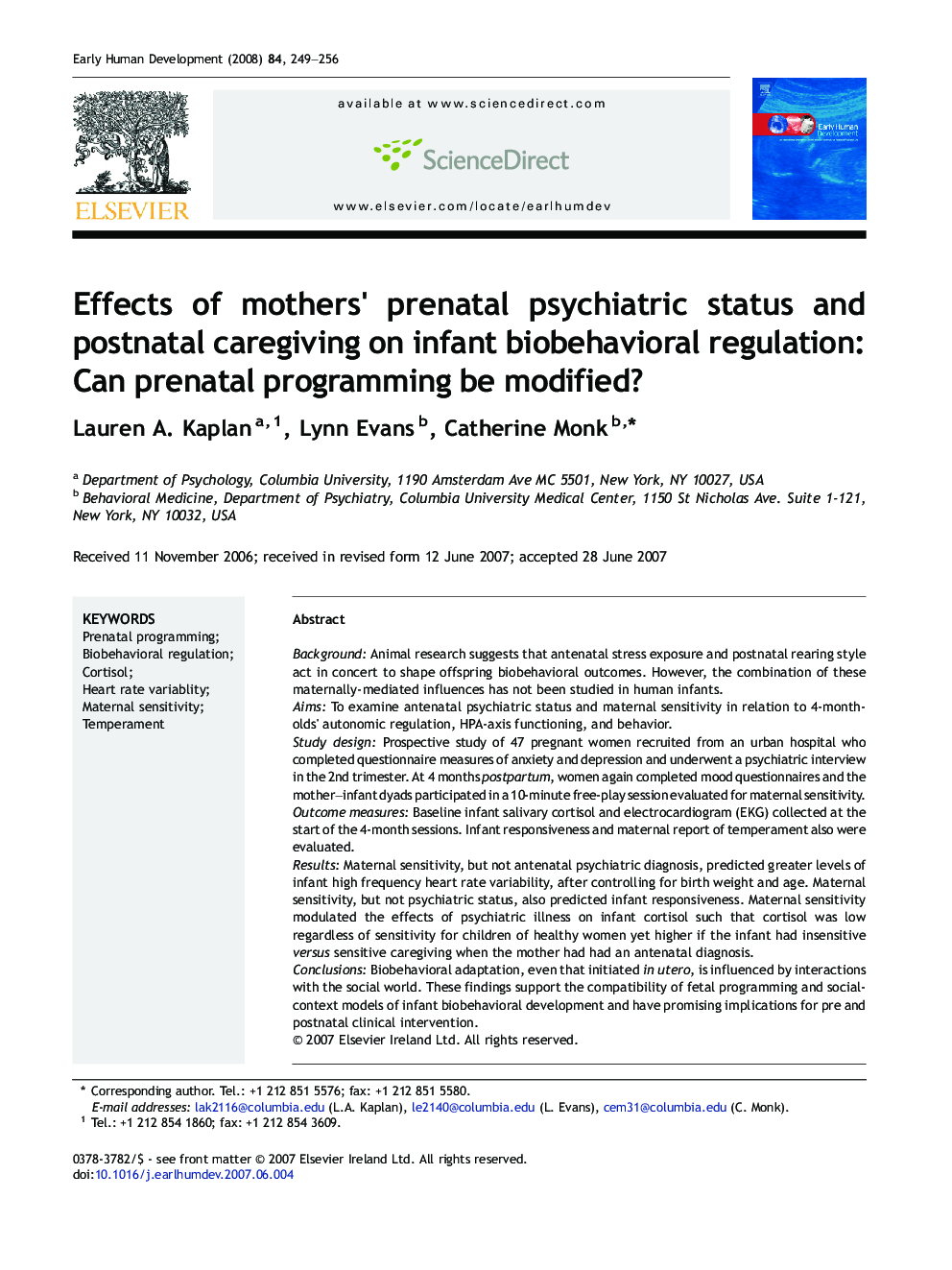| کد مقاله | کد نشریه | سال انتشار | مقاله انگلیسی | نسخه تمام متن |
|---|---|---|---|---|
| 3918266 | 1252190 | 2008 | 8 صفحه PDF | دانلود رایگان |

Background:Animal research suggests that antenatal stress exposure and postnatal rearing style act in concert to shape offspring biobehavioral outcomes. However, the combination of these maternally-mediated influences has not been studied in human infants.Aims:To examine antenatal psychiatric status and maternal sensitivity in relation to 4-month-olds' autonomic regulation, HPA-axis functioning, and behavior.Study design:Prospective study of 47 pregnant women recruited from an urban hospital who completed questionnaire measures of anxiety and depression and underwent a psychiatric interview in the 2nd trimester. At 4 months postpartum, women again completed mood questionnaires and the mother–infant dyads participated in a 10-minute free-play session evaluated for maternal sensitivity.Outcome measures:Baseline infant salivary cortisol and electrocardiogram (EKG) collected at the start of the 4-month sessions. Infant responsiveness and maternal report of temperament also were evaluated.Results:Maternal sensitivity, but not antenatal psychiatric diagnosis, predicted greater levels of infant high frequency heart rate variability, after controlling for birth weight and age. Maternal sensitivity, but not psychiatric status, also predicted infant responsiveness. Maternal sensitivity modulated the effects of psychiatric illness on infant cortisol such that cortisol was low regardless of sensitivity for children of healthy women yet higher if the infant had insensitive versus sensitive caregiving when the mother had had an antenatal diagnosis.Conclusions:Biobehavioral adaptation, even that initiated in utero, is influenced by interactions with the social world. These findings support the compatibility of fetal programming and social-context models of infant biobehavioral development and have promising implications for pre and postnatal clinical intervention.
Journal: Early Human Development - Volume 84, Issue 4, April 2008, Pages 249–256